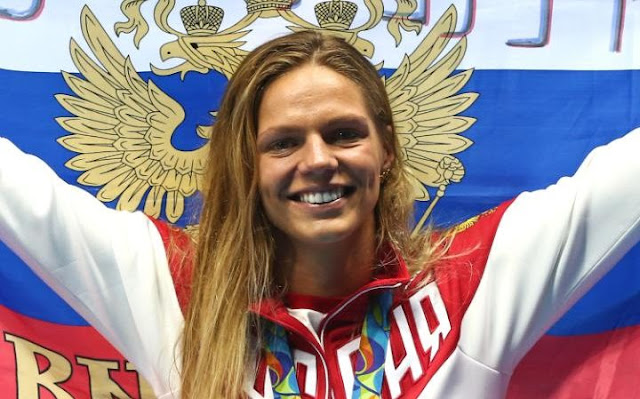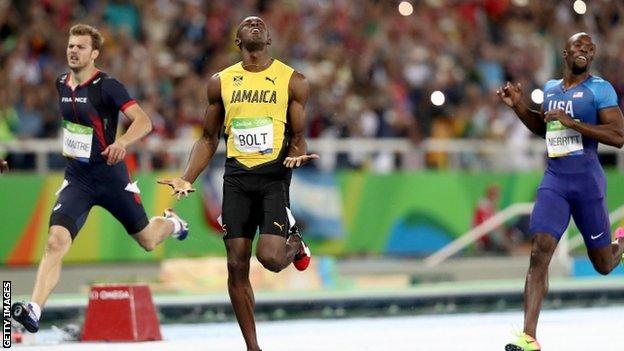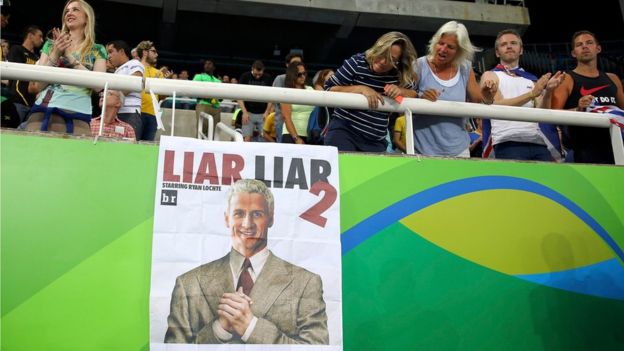Rio 2016: Russia medal-winner accuses West of new Cold War over drug-cheat scandal
 |
| Russia's Yulia Efimova, silver medalist, was jeered by some in the crowd at Rio.CREDIT: BARCROFT IMAGES |
ARussian swimmer claimed the West was launching a new Cold War over Olympics drug-cheating allegations on Tuesday as a bitter row between athletes intensified in Rio.
Finger-wagging, boos from the crowds and fierce criticism from rival athletes greeted the first Russian medal-winners after the country escaped a blanket ban for state-sponsored cheating.
However, Yulia Efimova, allowed to compete at the 11th hour after appealing a ban, claimed criticism was part of a new propaganda war as her silver medal in the breaststroke was met with jeers.
"In the Olympic Games, usually all wars stop, but now they can’t find a way to beat Russia and now they try to make use of athletes,” said Efimova, who is believed to be the first Russian to hit back over the scandal.
Lilly King, a US swimmer who won gold, had previously wagged her finger at Efimova. But the Russian responded angrily: “I would really like to encourage my fellow athletes to understand my problems and not let politics into it...I always thought the Cold War was long in the past. Why start it again, by using sport?"
The International Olympic Committee issued a plea for athletes to respect their fellow competitors after rows between athletes also cast doubt over some of the Chinese athletes at the Games.
Russia's entire Paralympics team has been banned from the eventafter evidence of state-sponsored doping, with Russia claiming that it has been left as a political scapegoat.
However, a host of elite athletes - including Team GB members - claimed Russia should have been expelled completely by the International Olympic Committee from the entire Games.
Rower Pete Reed, vying for his third gold in Rio, had told the Telegraph: "Personally I think the IOC was weak in not making the right decision which would have been, I think, to ban Russia from the Olympics. ... It needs to be clean. It can't all be about money."
Efimova's inclusion in the Games is all the more controversial as she tested positive for a banned steroid in 2013, and then again this winter for meldonium.
She claimed she had stopped taking meldonium before it was outlawed but the drug was still in her system, and she was allowed to compete after the International Swimming Federation lifted the ban after advice from the World Anti-Doping Agency, which is further researching the drug.
After the semifinal heat of the women's 100-metre breast stroke final on Sunday night, King told Efimova during a television interview: "You got caught for drug cheating, I'm just not a fan."
A confrontation also erupted between Mack Horton, the Australian swimming goldmedallist, and Sun Yan after Horton beat the Chinese defending champion in the 400 metres freestyle final on Saturday.
Asked about Sun and the South Korean Park Tae-Hwan — both doping violators — competing at the Games, Horton said he does not "have time or respect for drug cheats".
However, the Global Times newspaper, which is close to the ruling Communist Party, described Horton as "immoral", as the newspaper criticised Horton's "cynical smugness".
Russia denies its athletes cheat despite a report for the World Anti-Doping Agency (WADA) finding its government spent years covering up hundreds of doping cases.
The US, China and Russia have all topped the list in the previous three games although Russia's final tally is set to be considerably lower because of the bans.
Source: telegraph.co.uk




Comments
Post a Comment